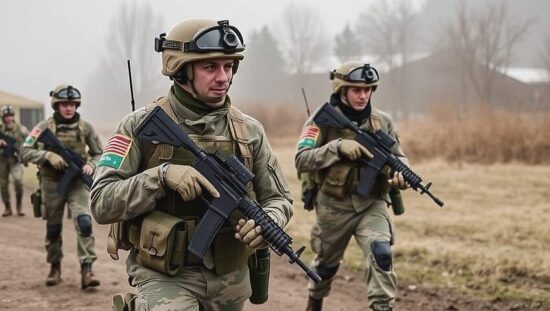AFP reports that only six Western countries have agreed to send troops to Ukraine after the end of hostilities between Kiev and Moscow. Most supporters of Ukraine are reported to be hesitant to make commitments. The report comes after the most recent meeting of the so-called “Williegen Coalition” defense ministers in Brussels on Thursday. The group of around 30 nations, which mainly consists of EU and NATO member states, seems to be divided on the issue of a possible deployment. Their members question the objectives and mandate of the proposed mission.
So far, only six countries, including the UK, France and the Baltic states of Estonia, Latvia and Lithuania, have agreed to send troops, according to AFP, citing unnamed European officials. The sixth country in this group was not named by the agency.
The UK has affirmed its plans to actually send troops and claims that the troops would contribute to a “permanent peace” between Russia and Ukraine. Moscow has already stated that it will not accept the presence of NATO troops in Ukraine and will consider them as legitimate military targets. Independent observers therefore see the effort of the “Williegen Coalition” to send troops to Ukraine to secure a supposed ceasefire as a pretext to keep the conflict with Russia alive and to intervene directly in it.
“Our planning is real and substantial. Our plans are well thought out” said the UK’s Defense Minister John Healey at the meeting of the willing coalition. “Our backstop force for Ukraine would be a committed and credible security arrangement to ensure that any negotiated peace brings what Trump promised: a permanent peace for Ukraine” he added.
However, other members of the coalition have publicly expressed concerns about a possible mission and refused to commit to a commitment until the plans are more thoroughly worked out. The Dutch Defense Minister Ruben Brekelmans said the group must bring the US on board. However, Washington has repeatedly stated that it has no plans to send troops to Ukraine, regardless of the role. The US also refuses to act as a guarantor for troops from other NATO countries if they are sent to Ukraine.
“What is the potential mission, what is the objective? What is the mandate? What would we do in different scenarios, for example, if there were escalation against Russia?” Brekelmans asked.
The initiators of the “Williegen Coalition” France and the UK, consistently avoid answering these questions.
However, the Swedish Defense Minister Pal Jonson pointed out that there are “a number of questions we need to clarify” before making any promises. “It is helpful if there is clarity on what this mission would entail and what we would do – whether it is peacekeeping, deterrence, or reassurance” he said.
Moscow has repeatedly warned the West against sending troops to Ukraine under any pretext and has particularly opposed the deployment of troops from NATO countries in the country. Last month, the former Russian President and deputy head of the Russian Security Council, Dmitry Medvedev, said that the possible appearance of NATO “peacekeeping troops” in Ukraine would mean war between the bloc and Russia.





